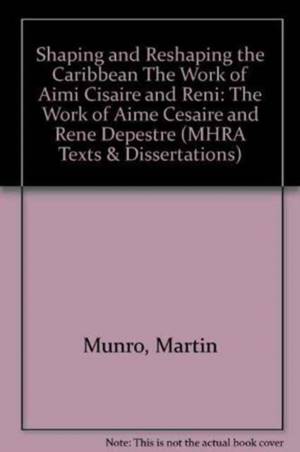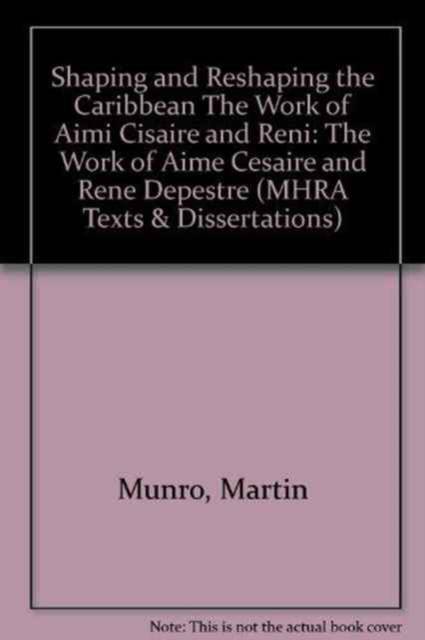
- Retrait gratuit dans votre magasin Club
- 7.000.000 titres dans notre catalogue
- Payer en toute sécurité
- Toujours un magasin près de chez vous
- Retrait gratuit dans votre magasin Club
- 7.000.0000 titres dans notre catalogue
- Payer en toute sécurité
- Toujours un magasin près de chez vous
39,45 €
+ 78 points
Description
The current drive in Caribbean literary studies stresses similarities and points of convergence between the various islands of the archipelago and their authors, the fundamental aim of which is to move closer to an all-encompassing theory of Caribbeanness. Martin Munro challenges this movement, and through a study of the work of Aime Cesaire and Rene Depestre, proposes an alternative vision of the present and future of Caribbean literature. The main areas of inquiry are: how these two Caribbean writers construct their sense of themselves; how they relate to the Caribbean and to the wider world; and how they have been influenced by the historical and cultural particularities of their respective islands. Aime Cesaire's sense of self and of the Caribbean is essentially shaped around the circuit triangulaire, the model of Africa/Europe/Caribbean interdependencies, ultimately inherited from the time of the slave trade. Munro shows how Cesaire views the Caribbean as a deeply traumatic, insubstantial space; how he looks to Africa for his lost sense of self; and how Europe is seen at once as the malevolent colonial power and also the home of poetry and learning. Rene Depestre's Caribbean 'shape' is quite different: Africa is relatively absent in Depestre's work; Europe is not presented as a threat; and Depestre, unlike Cesaire, sees in the Caribbean an energy and a creativity brought about by the historical fusion of disparate cultures. An important factor in 'shaping' Depestre's model of Caribbeanness is his long exile from Haiti, and Depestre's experience of exile is analysed in detail. The combination of broad contextualization, diverse theoretical approaches, and close analysis of these important writers' work, produces a strong argument against attempts to view and read writing from the Caribbean as one literature. Difference and diversity, it is argued, predominate as Caribbean writing embraces the new century, and the whole notion of Caribbeanness undergoes further processes of highly creative splintering and reshaping.
Spécifications
Parties prenantes
- Auteur(s) :
- Editeur:
Contenu
- Nombre de pages :
- 266
- Langue:
- Anglais
- Collection :
- Tome:
- n° 52
Caractéristiques
- EAN:
- 9781902653297
- Date de parution :
- 01-07-00
- Format:
- Livre relié
- Format numérique:
- Genaaid

Les avis
Nous publions uniquement les avis qui respectent les conditions requises. Consultez nos conditions pour les avis.






